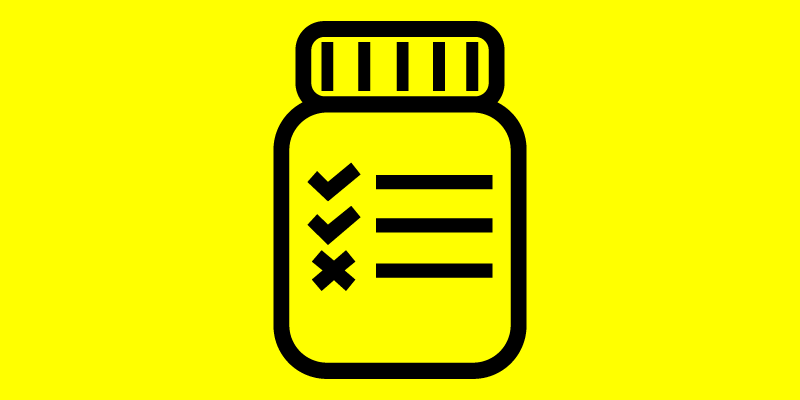Revolutionizing Medicine
The process of drug discovery has historically been a laborious and time-consuming endeavor, with researchers sifting through vast chemical libraries in search of potential therapeutic candidates. However, the advent of Artificial Intelligence (AI) has sparked a transformative revolution in the pharmaceutical industry. AI-powered algorithms are streamlining drug discovery, accelerating the identification of promising compounds, and revolutionizing the way medicines are developed. In this article, we will explore the dynamic world of drug discovery using AI, delving into the applications, benefits, and challenges of this groundbreaking approach.
The Complexity of Traditional Drug Discovery
Traditional drug discovery is a multistep process that involves identifying drug targets, designing and synthesizing compounds, and conducting extensive preclinical and clinical trials. This process can take several years and involves prohibitive costs and a significant risk of failure. Despite these challenges, the development of new medicines is vital for addressing unmet medical needs and improving global health.
How AI is Revolutionizing Drug Discovery
Artificial Intelligence has made a significant impact in drug discovery, offering a data-driven and efficient approach that complements traditional methods. Here’s how it is transforming drug discovery:
- Target Identification: AI analyzes vast biological datasets to identify potential drug targets, including proteins, genes, and receptors associated with specific diseases. This targeted approach streamlines the identification of promising drug candidates
- Virtual Screening: AI conducts virtual screening of chemical compounds to predict their interactions with target molecules. By simulating interactions, the technology narrows down the search for potential drug candidates, saving time and resources
- Drug Design and Optimization: AI-driven computational models can design and optimize drug molecules with improved efficacy and reduced side effects. This iterative process of drug design expedites the identification of safe and effective drug candidates
- Drug Repurposing: AI analyzes existing drug databases to identify potential new uses for approved drugs. This approach, known as drug repurposing, can fast-track drug development by skipping early-stage safety trials
Applications of AI in Drug Discovery
Artificial Intelligence is revolutionizing various stages of the drug discovery process. Let’s explore how these applications are transforming drug development:
- Lead Generation: AI assists in the identification of lead compounds with high therapeutic potential. Algorithms analyze molecular structures and predict their biological activity, guiding researchers towards promising candidates
- Toxicity Prediction: AI can predict potential drug toxicities during initial stages of drug development. By identifying compounds with high toxicity risks, the technology helps researchers avoid pursuing candidates with safety concerns
- Clinical Trial Optimization: AI can optimize clinical trial design by analyzing patient data and predicting treatment responses. This leads to more efficient trial recruitment, reduced costs, and faster drug approval processes
- Personalized Medicine: AI leverages patient data, genetic information, and treatment outcomes to design personalized treatment plans. This precision medicine approach tailors treatments to individual patients, improving treatment efficacy
Benefits and Challenges of AI in Drug Discovery
Benefits of AI in Drug Discovery:
- Accelerated Drug Development: AI expedites the drug discovery process by swiftly analyzing vast datasets and identifying promising drug candidates, reducing the time required for development
- Cost Savings: By streamlining drug discovery, the technology reduces the costs associated with traditional methods, making drug development more financially viable
- Increased Success Rates: AI-driven drug discovery increases the probability of identifying successful drug candidates, reducing the risk of failure in later stages of development
- Targeting Complex Diseases: Models can analyze intricate disease mechanisms and identify novel targets for complex diseases that have eluded traditional approaches
Challenges of AI in Drug Discovery:
- Data Quality and Quantity: Artificial Intelligence models require access to large and diverse datasets for training, and obtaining high-quality data can be challenging
- Interpretability: These same models can be complex and difficult to interpret, raising concerns about how decisions are made and affecting regulatory approval
- Bias and Ethics: Ensuring that algorithms are unbiased and ethically developed is crucial, especially when it comes to sensitive medical data
Advancing Medicine and Patient Care
The integration of AI in drug discovery marks a monumental advancement in medicine, revolutionizing the pharmaceutical industry and transforming patient care. By leveraging this power, researchers can accelerate the identification of potential drug candidates, optimize treatment plans, and address unmet medical needs more effectively.
While AI offers immense potential, it also presents challenges that must be addressed responsibly. Ensuring high-quality data, transparency in algorithms, and adherence to ethical principles are critical considerations in drug discovery.
As AI continues to evolve, its impact on drug discovery will undoubtedly shape the future of medicine. By embracing this transformative technology and collaboratively addressing challenges, we can unlock a new era of innovative treatments and improved global health.
The journey of AI in drug discovery is one of endless possibilities, and its role in advancing human health is both inspiring and transformative. Let us embrace this partnership between Artificial Intelligence and drug discovery and witness the transformative impact it has on the world of medicine.





